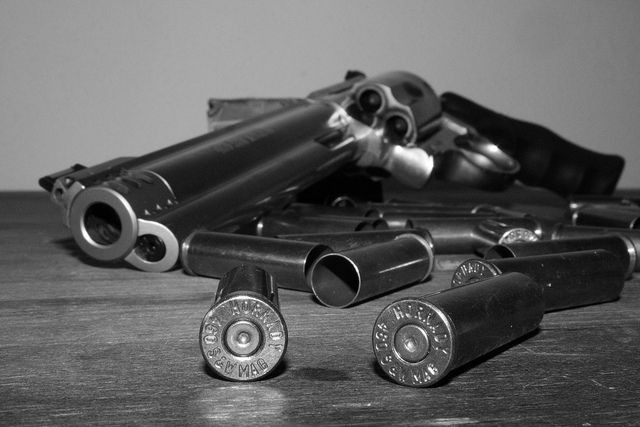US Ranks Number One In Mass Shootings, But Guns May Not Be The Whole Problem

When we talk about mass shootings, the one topic that’s most likely to arise afterward is the issue of gun control. Some people will want stricter laws, which may help reduce the number of shootings in the country, while others want every single person to carry a firearm, so that they’ll be ready should someone decide to start shooting. Unfortunately, this discussion is a war of attrition, as neither side has made any real progress in getting their opinions turned into law. But what if guns weren’t the only reason the U.S. has so many mass shootings? A new study from the University of Alabama shows there may be other reasons for why people turn to indiscriminate violence.
Since 1966, the U.S., which ranks number one in mass shootings, has had more than runners-up the Philippines, Russia, Yemen, and France combined, according to criminologist James Lankford, whose paper is being presented this week at the American Sociological Association’s annual meeting in Chicago. Out of the 291 documented mass shootings that occurred between 1966 and 2012, 31 percent of them happened in the United States.
What makes the U.S. so much different from the other countries? Gun ownership. According to Lankford, In his analysis of 178 countries, Lankford found that the U.S. dominated the list of gun owners, ranking first in per capita gun ownership. A 2007 article on gun ownership by Small Arms Survey found that Americans owned 270 million firearms, while India took second place, with only 46 million. That means that in America, an estimated 83 to 97 per 100 people own a firearm.
This association between high gun ownership and mass shootings per country was something that Lankford found significant. Yemen, which came in second in terms of gun ownership, still followed far behind with only 54 per 100 people owning a firearm, according to the Los Angeles Times. In third and fourth came Finland and Switzerland, respectively. And although regarded as relatively safe places to live, they still placed among the top 15 countries for mass shooters per capita.
Though Lankford went into great depth on the correlation between gun ownership and mass shootings per country, he also found that simply owning a gun isn’t the sole reason for mass shootings, especially not in the U.S. The “American Dream” has changed over the years, and Lankford believes that this may have something to do with mass shootings. As young people chase the “American Dream” of financial success, educational achievement, and doing better than their parents ever did, they put themselves through years of psychological strain. If those dreams go unrealized, or are ruined, the strain becomes much more substantial. In rare cases when that strain proves too much, a mass shooter is born, he says.
Fame is another reason for mass shootings, according to Lankford. "Increasingly in America — perhaps more than in any other country on the globe — fame is revered as an end unto itself," Lankford wrote. "Some mass shooters succumb to terrible delusions of grandeur and seek fame and glory through killing." In the same way a failed "American Dream" would drive an unstable person to killing, the lack of fame can push a frustrated person toward mass violence.
Source: Lankford A. et al. American Sociological Association Annual Meeting. 2015.
Published by Medicaldaily.com



























